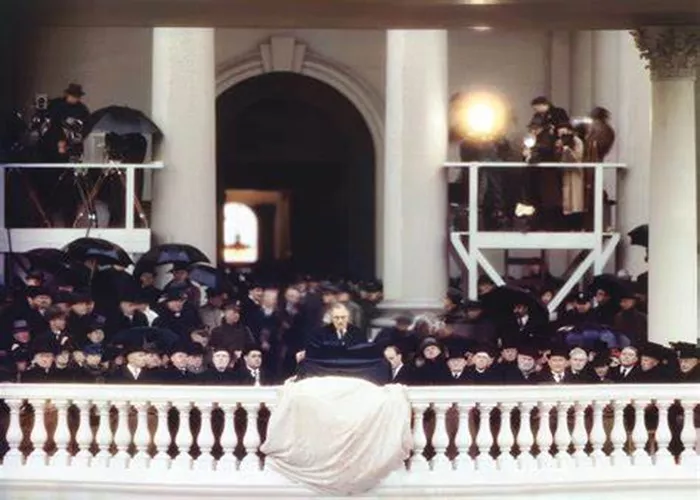January 20 has been a day of notable events throughout American history, marked by political milestones, cultural moments, and significant births and deaths. This article will explore various historical occurrences on this date, providing a detailed overview of their significance and context.
What Happened on January 20 in American History?
1. Franklin D. Roosevelt’s Second Inauguration (1937)
Franklin D. Roosevelt was inaugurated for his second term as President of the United States on January 20, 1937. This inauguration was historic as it was the first to occur on January 20 due to the ratification of the 20th Amendment to the Constitution, which moved the inauguration date from March 4 to January 20. The change aimed to reduce the “lame duck” period between the election and the inauguration, allowing newly elected officials to assume office sooner. Roosevelt’s second term began during the Great Depression, a time when his New Deal policies were critical in addressing economic challenges facing the nation.
2. Ronald Reagan’s Inauguration (1981)
On January 20, 1981, Ronald Reagan was inaugurated as the 40th President of the United States. This event was significant not only because it marked a change in leadership but also because it coincided with the release of American hostages held in Iran after 444 days of captivity. The timing of their release was seen as a symbolic gesture, emphasizing a new beginning for America under Reagan’s leadership. His inaugural address focused on restoring national pride and confidence amidst economic difficulties and international tension.
3. Joe Biden’s Inauguration (2021)
The most recent presidential inauguration took place on January 20, 2021, when Joe Biden was sworn in as the 46th President of the United States. This event occurred against a backdrop of significant national turmoil, including the COVID-19 pandemic and political unrest following the Capitol riots on January 6, 2021. The inauguration was conducted with heightened security measures and limited public attendance due to health concerns. Biden’s inaugural address emphasized unity and healing for a divided nation, marking a pivotal moment in American history.
4. Buzz Aldrin (1930)
Buzz Aldrin, born on January 20, 1930, is an iconic figure in American history as one of the first two humans to land on the Moon during NASA’s Apollo 11 mission in July 1969. Aldrin’s contributions to space exploration have made him a celebrated astronaut and advocate for space science education.
5. David Lynch (1946)
David Lynch, born on January 20, 1946, is a renowned filmmaker known for his unique storytelling style and surrealistic approach to cinema. His works include “Blue Velvet,” “Mulholland Drive,” and the cult television series “Twin Peaks.” Lynch’s influence on modern film and television has been profound, earning him critical acclaim and a dedicated fanbase.
6. Audrey Hepburn (1993)
Audrey Hepburn, one of Hollywood’s most beloved actresses and humanitarian icons, passed away on January 20, 1993. Known for her roles in classic films such as “Breakfast at Tiffany’s” and “Roman Holiday,” Hepburn’s legacy extends beyond her film career; she dedicated much of her later life to humanitarian work with UNICEF, advocating for children’s rights around the world.
7. King George V (1936)
King George V of the United Kingdom died on January 20, 1936. His death marked a significant transition in British history as he was succeeded by his son, King Edward VIII. George V’s reign saw major changes in British society and politics during World War I and the interwar period.
8. The First Constitution of Turkey (1921)
On January 20, 1921, Turkey adopted its first constitution following its independence from imperial rule after World War I. This constitution laid the groundwork for modern Turkish governance and reflected significant changes in national sovereignty and civil rights.
9. The Wannsee Conference (1942)
The Wannsee Conference took place on January 20, 1942, where senior Nazi officials discussed plans for implementing the “Final Solution”—the systematic extermination of Jews during World War II. This meeting is considered a critical moment in Holocaust history as it formalized plans that would lead to mass genocide.
Conclusion
January 20 has proven to be a day rich with historical significance across various domains—politics, culture, and social change. From presidential inaugurations that have shaped American governance to notable births and deaths that reflect cultural evolution, this date encapsulates pivotal moments that have influenced both national identity and global history.As we reflect on these events from different eras, we recognize how they interconnect with broader themes of leadership transitions, societal challenges, and cultural contributions that continue to resonate today.By examining these occurrences in detail, we gain insight into how individual actions and collective movements have shaped our present landscape—a testament to the enduring impact of history on our lives today.
Related Topics:

